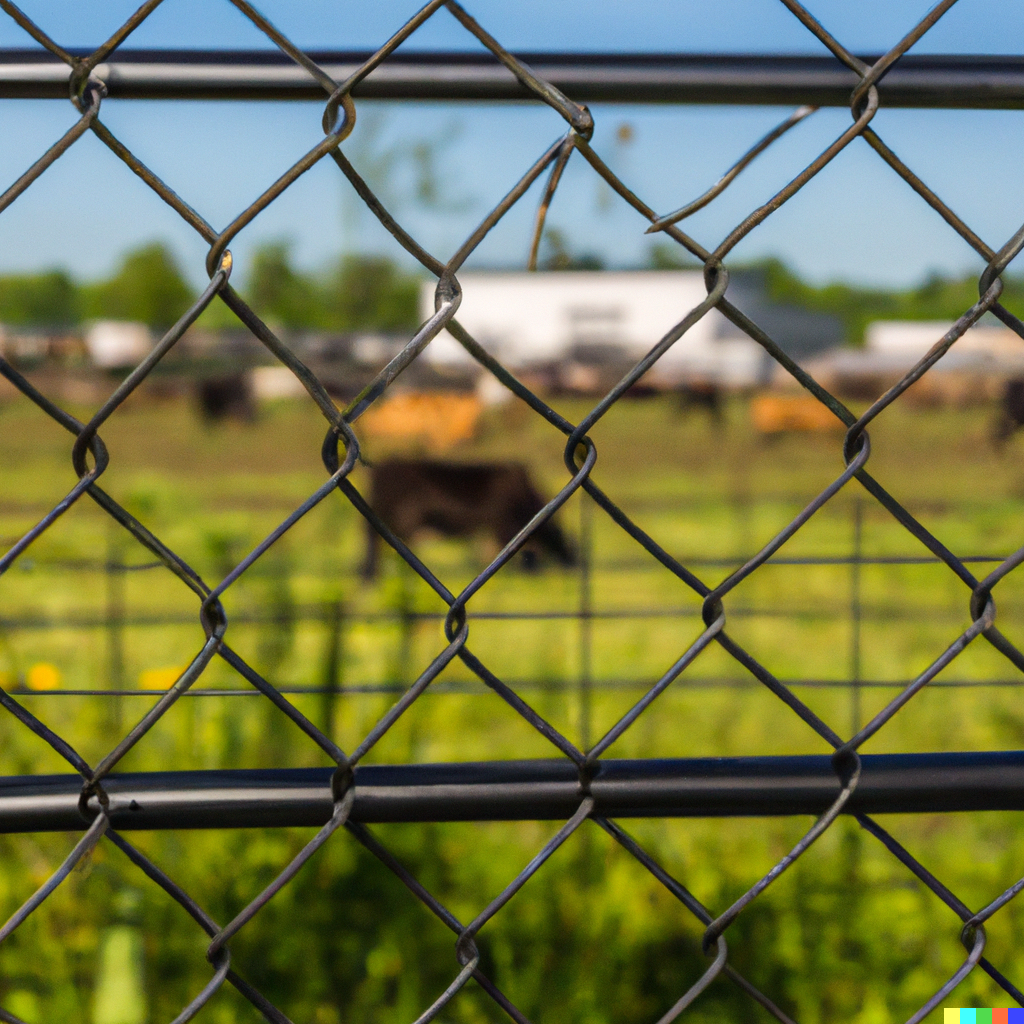Steel Fencing for Livestock and Poultry Farms: A Comprehensive Guide
Fencing is an essential part of a livestock and poultry farm, as it provides a secure and safe environment for the animals to graze, roam and live in. When it comes to fencing, steel fencing is one of the most popular choices among farmers, and for good reason. Steel fencing is durable, low-maintenance, and can withstand harsh weather conditions, making it an ideal choice for farms.
In this article, we’ll delve into the world of steel fencing for livestock and poultry farms. We’ll cover the types of steel fencing available, the benefits of steel fencing, and the factors to consider before installing steel fencing. We’ll also answer some frequently asked questions about steel fencing for farms.
Types of Steel Fencing for Livestock and Poultry Farms
There are several types of steel fencing available for livestock and poultry farms. The most common types include:
1. Welded wire fencing: This type of fencing is made of welded steel wire mesh, which is then coated with PVC for added durability. Welded wire fencing is easy to install and maintain, and it’s suitable for a variety of animals, including chickens, goats, and sheep.
2. Woven wire fencing: Woven wire fencing is similar to welded wire fencing, but it’s made of woven wire instead of welded wire. This type of fencing is more durable than welded wire fencing, and it’s suitable for larger animals like horses and cattle.
3. Barbed wire fencing: Barbed wire fencing is a cost-effective option that’s commonly used for large pastures. It’s made of twisted wires with barbs spaced along the length of the wire. Barbed wire fencing is not recommended for smaller animals because the barbs can cause injury.
4. Electric fencing: Electric fencing is a type of steel fencing that uses electric shocks to deter animals from crossing the fence. It’s ideal for temporary fencing or for areas where traditional fencing is not practical.
Benefits of Steel Fencing for Livestock and Poultry Farms
Steel fencing offers several benefits for livestock and poultry farms. Some of the key benefits include:
1. Durability: Steel fencing is incredibly durable and can withstand harsh weather conditions, including wind, rain, and snow. It’s also resistant to pests and animals, making it an ideal choice for farms.
2. Low-maintenance: Steel fencing is low-maintenance and requires minimal upkeep. It doesn’t require painting or staining, and it’s easy to clean.
3. Security: Steel fencing provides a secure and safe environment for livestock and poultry. It can prevent animals from escaping and predators from entering the pasture.
4. Versatility: Steel fencing is versatile and can be used for a variety of animals, including chickens, goats, sheep, horses, and cattle.
Factors to Consider Before Installing Steel Fencing
Before installing steel fencing on your farm, there are several factors to consider. These include:
1. Purpose: Determine the purpose of the fence. Is it to keep your animals in, predators out, or both?
2. Terrain: Consider the terrain of your farm. Is it flat or hilly? This can affect the type of fencing you choose.
3. Animal type: Consider the type of animals you have on your farm. Different types of animals require different types of fencing.
4. Budget: Determine your budget for fencing. Steel fencing is more expensive than other types of fencing, but it’s also more durable and long-lasting.
FAQs About Steel Fencing for Livestock and Poultry Farms
Q: How long does steel fencing last?
A: Steel fencing can last up to 25 years or more with proper maintenance.
Q: Can steel fencing be recycled?
A: Yes, steel fencing can be recycled, making it an eco-friendly option.
Q: Is steel fencing easy to install?
A: Yes, steel fencing is easy to install with the right tools and equipment.
Q: Can steel fencing be painted?
A: Yes, steel fencing can be painted to match the aesthetics of your farm.
Q: Is steel fencing suitable for all types of animals?
A: No, different types of animals require different types of fencing. Consult with a fencing expert to determine the best type of fencing for your animals.
Conclusion
Steel fencing is a durable, low-maintenance, and versatile option for livestock and poultry farms. With proper maintenance, steel fencing can last up to 25 years or more, making it a worthwhile investment for farmers. When choosing steel fencing, consider factors such as the purpose of the fence, the terrain of your farm, the type of animals you have, and your budget. With the right type of steel fencing, you can provide a secure and safe environment for your animals to thrive in.


